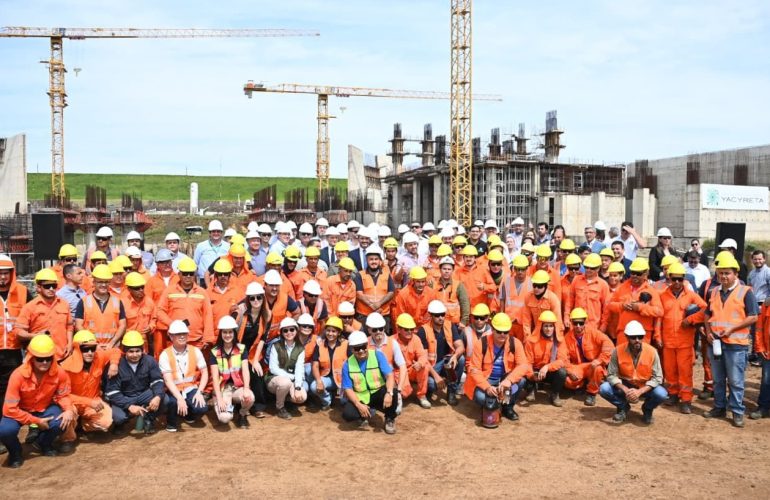Paraguayan and Argentine authorities have marked a significant milestone with the ceremonial restart of works on the Aña Cua arm of the Yacyretá Binational Hydroelectric Plant, a project stalled for two years due to financial difficulties. The event saw officials from both nations gather to resume construction on the Aña Cua arm, which promises to boost hydroelectric generation and stimulate economic growth across the border region.
Alfonso Peña, executive director of the Yacyretá Binational Entity on the Argentine side, described the occasion as a triumph of collaboration. “Today, after much work done with the entire team of the Yacyretá Binational Entity, we are restarting a project that will not only generate energy and development for our countries, but will also create jobs in the two surrounding cities, both in Paraguay and Argentina,” he said.
Aña Cua project: Adding 270 megawatts
The Aña Cua project modernisation involves installing three Kaplan turbines, increasing the plant’s overall electricity generation capacity by 10% through an additional 270 megawatts. Official figures indicate the project will directly employ 1,000 workers from both the Paraguayan (left) and Argentine (right) banks. The first turbine is scheduled to enter service in July 2028.
Peña stressed the importance of momentum: “We have a great responsibility to continue working day by day so that this project can be completed and executed, and I hope that the project will not be delayed longer than expected.”
“Paraguayan leadership key to overcoming impasse”
The Paraguayan delegation was led by Vice President Pedro Alliana, who monitored the negotiations closely. Luis Benítez, Paraguayan director of Yacyretá, credited Paraguyan President Santiago Peña’s direct intervention during a trip to Italy for helping resolve the financing issues that had halted progress for nearly two years.
Félix Sosa, president of Paraguay’s National Electricity Administration (ANDE), praised the restart as evidence of effective teamwork under President Peña’s government. He highlighted a sharp rise in domestic energy demand, with consumption increasing 18% over the past year, underscoring the urgency of expanding generation capacity.
Eyes already on future binational ventures
Looking ahead, Sosa proposed further joint initiatives, naming the long-discussed Itati-Ita Corá and Corpus projects as potential next steps.
“We need to increase our country’s power generation capacity, and why not consider Itati-Ita Corá, why not consider Corpus? I am sure our Argentine brothers will agree that increased generation definitely means development for the country and job creation,” he said.
The successful resumption of the Aña Cua works signals renewed commitment to binational energy cooperation, and regional development on both sides of the Paraná River.
Recently, the Yacyretá Binational Entity partnered with the Municipality of Encarnación to deliver 13,000 cubic metres of sand to Encarnación’s beach, enabling comprehensive replacement and reconditioning works on the beach.


